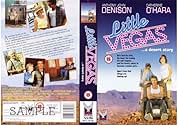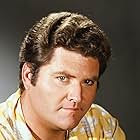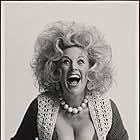This moral melodrama is a work that a viewer may well wish to like more than it deserves. Although effectively photographed and designed, its plot line is, nonetheless, remote and unduly extended. Actor Perry Lang, in his only stint as a feature film director, also writes the screenplay that wants for more development. It is foremost an actor's film, as is made clear in the majority of the work's scenes. The film's unlikely protagonist, Carmine DiCarlo (Anthony John Denison), alcoholic gigolo, has been bequeathed $40,000 by his newly expired lover Martha (Anne Francis), but the latter's son Harvey (Bruce McGill) contests the will, hoping to use the moneys to aid in the launching of a new casino complex to attract desert tourists ("Little Vegas"), with assistance from a former Las Vegas hood, played by Jerry Stiller. Further complicating Carmine's situation are his teenage son of whom he has been awarded custody, a romantic connection with Martha's daughter Lexi (a fine turn from Catherine O'Hara), and his gangster brother Frank (Michael Nouri) who tries to persuade Carmine to return with him to his erstwhile home in New Jersey. Through all of this, Carmine manages to exhibit a certain joie de vivre for which he can not be despised. The film had but few theatre showings prior to being relegated to cable television, and home video sales. The piece offers a wide range of genres, while not quite settling upon being a comedy or romance, let alone a crime based thriller. This, then, fails to create an essential element: suspense, as many viewers simply will not care about whatever may happen to any of the storyline's principals. Lang, who plays an important role, does not manage to imbue his freshman effort as director with life (energy).
















